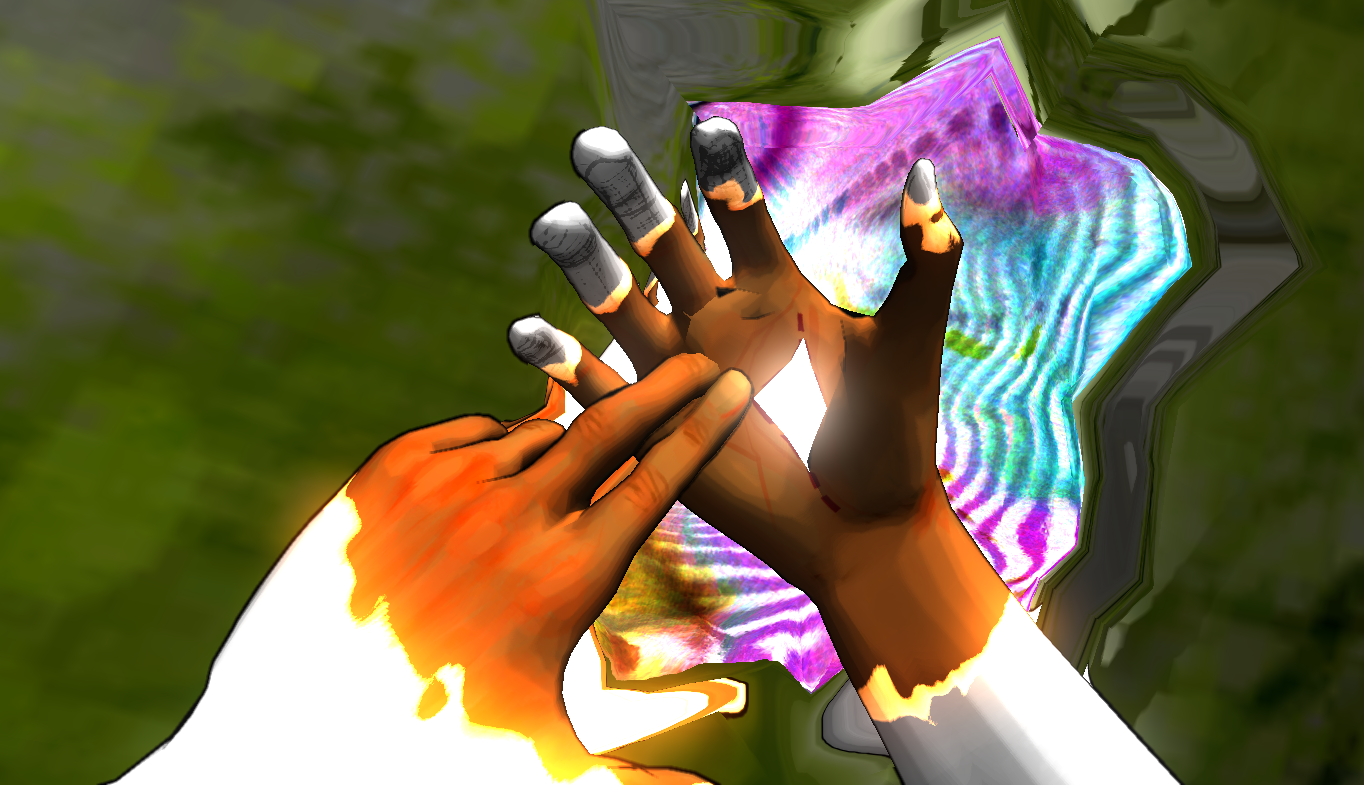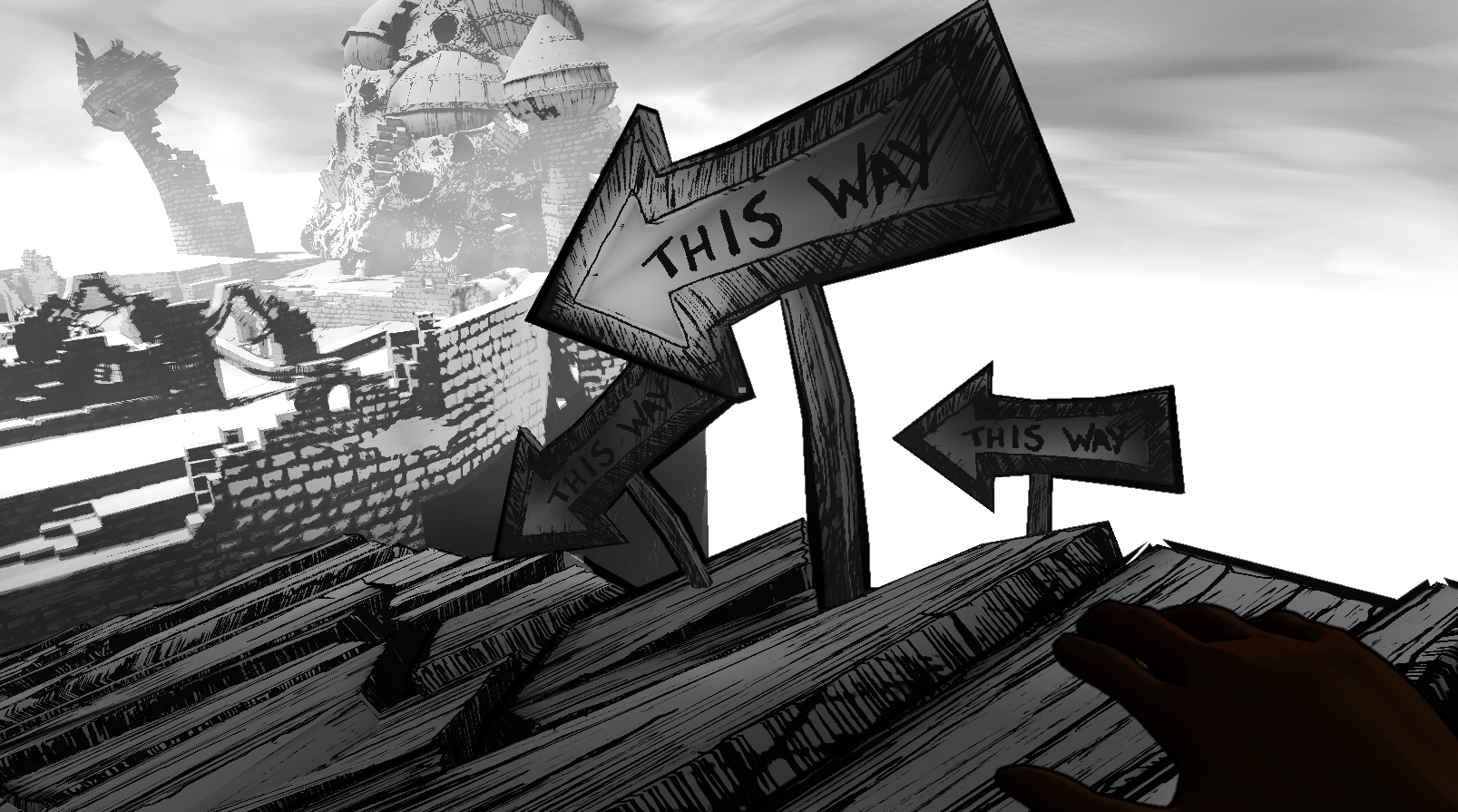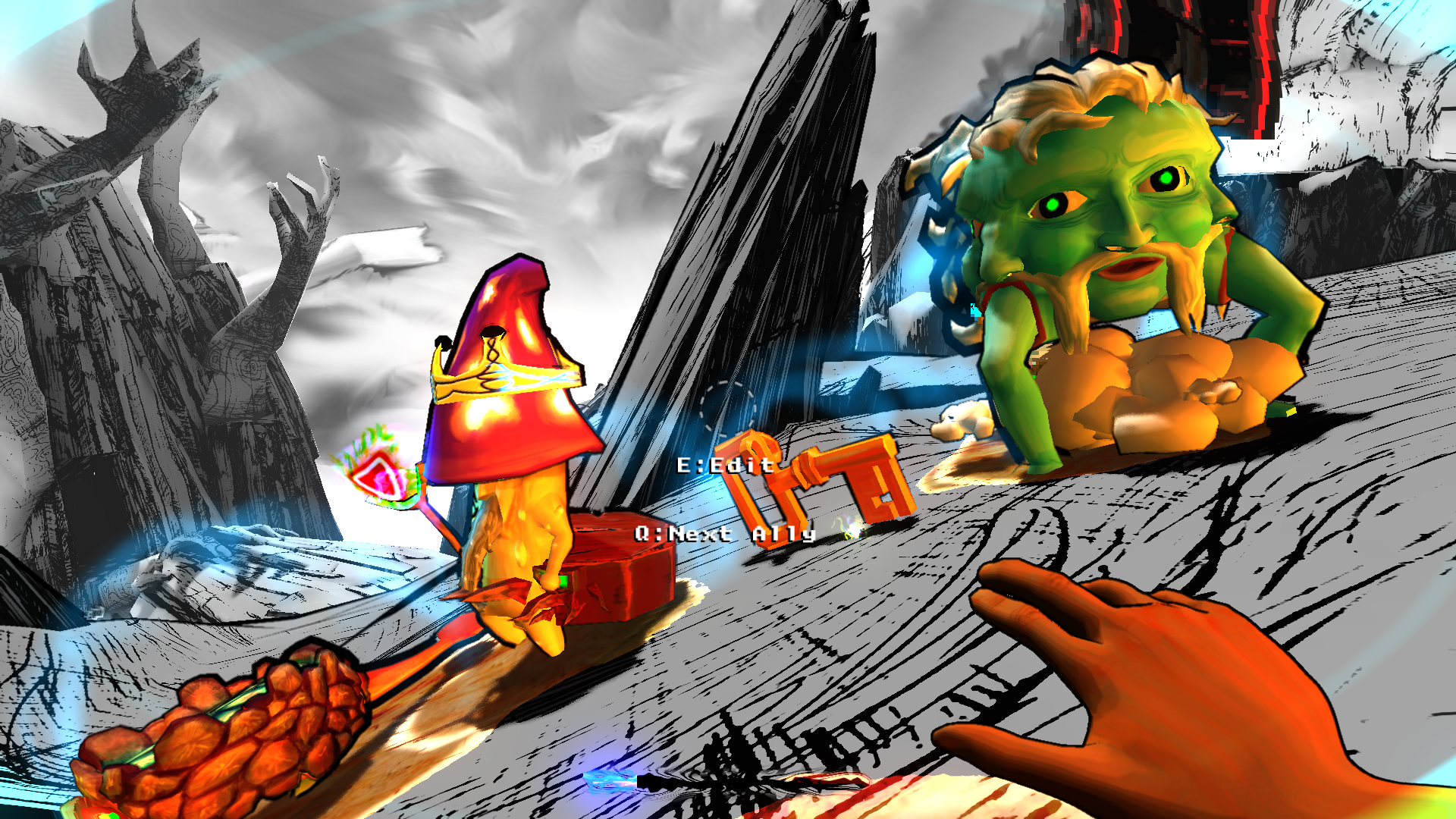The Magic Circle review (Early Access)

According to the developers of The Magic Circle, their game will be in Early Access for only the next few weeks, which feels like a bit of a shame. As their unfinished adventure game is about exploring an unfinished adventure game, I think it would be a fine joke to keep it in Early Access indefinitely. On the other hand, The Magic Circle has plenty of humor to spare, and some clever and satisfying concepts.
As a beta tester, you enter The Magic Circle, a game long in development yet clearly years away from being complete (and here I'm talking about the game within the game, not the game itself, which feels pretty darn done). The unfinished fantasy game is built on the bones of an even earlier sci-fi game, and that futuristic setting juts through the cobblestones and castles of the overworld. There are all sorts of jokes about gaming: cutscenes, crowdfunding, story, combat, and characters all get a nice ribbing. "Look at our hero!" the developer, represented as a hovering eyeball, cries at one point. "A lonely mute who can't even lower their killing hand." There's also number of gentle digs at gamers, game developers, and yes, game reviewers.
As you explore the overworld you come across half-finished entities, deleted content, placeholder quests, and code notations left by the developers. One note mentions that players are having difficulty locating the correct route to a new area. You can see the temporary and rather sarcastic solution below.

Though the game world is a shambles, it provides you, the tester, with some excellent tools. As if by magic, you can burrow into the game's code and edit the properties of most of the entities you come across. So if you're attacked by a howler (it's like a little wolf) you can trap it and edit its properties to make it view you as an ally from then on. If you'd like your new friend to attack some other creature, you can simply list that creature as an enemy. You can also completely strip an entity's qualities, leaving it inert, and add those qualities to your library to be applied to other entities.
This is how I wound up with a giant gold key following me around like a faithful dog. After using the key to rescue a Mushroom Wizard who was trapped in a jail cell, I wondered if I might need the key again later, and didn't want to carry it around. So, I gave it the movement qualities of one of those little wolves, and it followed me everywhere. I also animated corpses, made rocks hover and fly, made a robot hate several other robots, and made a baby shoot lasers out of its face. Soon I had a menagerie of helpful followers trailing me everywhere and doing my bidding, as well as a library of attributes I could swap between them. All of this editing is done to solve puzzles, defeat monsters, and gain access to new areas.

Being able to edit entities you come across is the highlight of The Magic Circle, and there's a lot of clever uses for it as you try to figure out the best way to tackle a problem using your new allies and their swappable skills. I feel like The Magic Circle could have taken it a few steps further, as there were attributes I never once found a good use for, but that may simply be because I came across other solutions. My other issue is with one particular enemy-turned-friend, which was so powerful it wound up being the key to pretty much every situation I ran into near the end of the game.
And, for a game that pokes fun at cutscenes, it gives you a hell of a long and not terribly interesting one to sit through near the end, disappointing considering how light and playful the writing and comedy had been to that point. On the plus side, at the very end there's an enjoyable section where you get to put your own game design skills to the test, and you can return to the overworld when you're done to track down any secrets and hidden areas you might have missed.
Keep up to date with the most important stories and the best deals, as picked by the PC Gamer team.
Verdict
With the exception of a dull and draggy scene at the end, The Magic Circle is fun, funny, well-written and performed, and mostly makes good use of its clever concepts.

Chris started playing PC games in the 1980s, started writing about them in the early 2000s, and (finally) started getting paid to write about them in the late 2000s. Following a few years as a regular freelancer, PC Gamer hired him in 2014, probably so he'd stop emailing them asking for more work. Chris has a love-hate relationship with survival games and an unhealthy fascination with the inner lives of NPCs. He's also a fan of offbeat simulation games, mods, and ignoring storylines in RPGs so he can make up his own.

